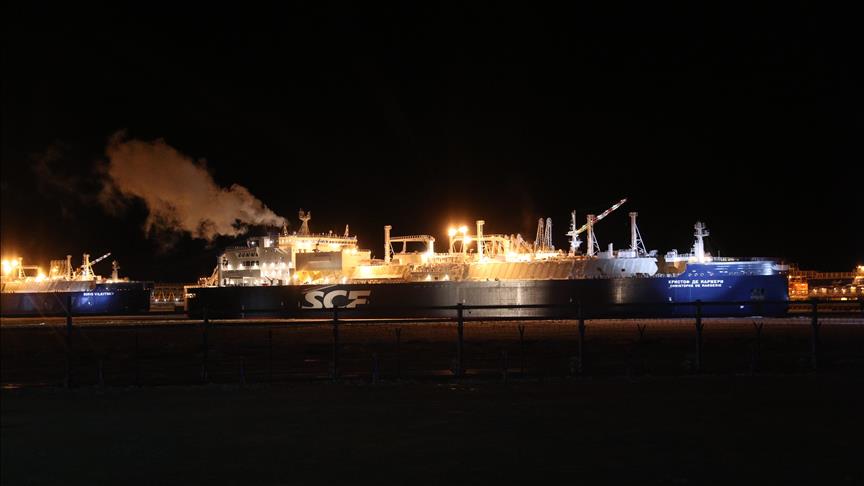Russia seeks to become one of the world's largest liquefied natural gas (LNG) exporters thanks to foreign investments despite U.S. sanctions against some Russian entities. Until a few years ago, Russian authorities had been skeptical about the prospects on competing for the global LNG market dominated by Qatar, Australia, Algeria, Indonesia and the U.S
Russia seeks to become one of the world's largest liquefied natural gas (LNG) exporters thanks to foreign investments despite U.S. sanctions against some Russian entities. Until a few years ago, Russian authorities had been skeptical about the prospects on competing for the global LNG market dominated by Qatar, Australia, Algeria, Indonesia and the U.S.
Now they say that Russia could soon have a say in the global LNG market with a much bigger share. Back in December, Energy Minister Alexander Novak said that Russia's current share of the global LNG market could be increased to 15-20 percent by 2035.
More recently, in February, Deputy Energy Minister Kirill Molodtsov said Russia was making its move towards the LNG market in a timely manner.
"We are entering this market not too early, not too soon. Right on time. The beauty of LNG markets is that it is extremely flexible," he said in an interview with Russian daily Vedomosti.
Russia exported 10.8 million tons of LNG last year, and aims to increase this amount to 20 million tons by the end of the year.
The country's LNG exports are expected to reach 52 billion cubic meters annually by 2040, according to the British Petroleum 2018 World Energy Statistics Outlook Report.
Japan, China and South Korea, which account for 60 percent of global LNG imports, are expected to remain Russia's main market. Russia's LNG exports to these countries increased by 48.2 percent from January to August compared to the same period of 2017, and hit 15 billion cubic meters.
-Novatek leads Russia’s growth in LNG
Novatek, the country's largest independent natural gas company, will be one of the chief architects of the increasing competition in the global LNG market.
Yamal LNG project, which was commissioned with a $27 billion investment under the leadership of Novatek, has become the second LNG export facility in Russia.
Upon completion in the first quarter of 2019, the plant is expected to have an annual production capacity of 16.5 million tons. Its shareholders are Novatek which holds a 50.1 percent interest, while French Total and Chinese CNPC companies hold 20 percent each and Chinese Silk Road Fund has the remaining 9.9 percent share. The first LNG shipment of 170 thousand cubic meters was delivered to the U.K. in December 2017.
Total also has a 10 percent share in Novatek's Arctic LNG 2 project, which it acquired at the International Economic Forum in St. Petersburg in May. With the project, which is expected to reach an investment of $25.5 billion, approximately 20 million tons of LNG is planned to be produced starting from 2022. In addition to Chinese companies, some Saudi companies are also interested in the project.
-Gazprom wants to increase its share too
Gazprom, the world's largest producer and exporter of natural gas, also wants a bigger piece of the pie with ongoing operations for Baltic LNG and Vladivostok LNG facilities.
Baltic LNG will have an annual capacity of 10 million tons and requires an investment of $18 billion. The Vladivostok LNG plant, on the other hand, comes with a $13 billion investment, and an annual capacity of 13.6 million tons.
According to the estimates made by Gazprom, the share of the company in global LNG exports is expected to reach 6 percent by 2025.
-Sanctions undermining investments
Sanctions on Russia's energy industry are challenging for the country's LNG projects, particularly in offshore natural gas production.
According to a December 2017 report by the Ministry of Natural Resources regarding the sanctions imposed by the U.S. and other Western countries, many new LNG projects are forced to be cancelled due to various pressures on foreign investments, and the restrictions on the entry of new technologies and equipment into the country.
On the other hand, Total and Chinese investors, who have not yet yielded to Western pressure, are continuing their investments in the country.
By Emre Gurkan Abay
(Anadolu Agency)




